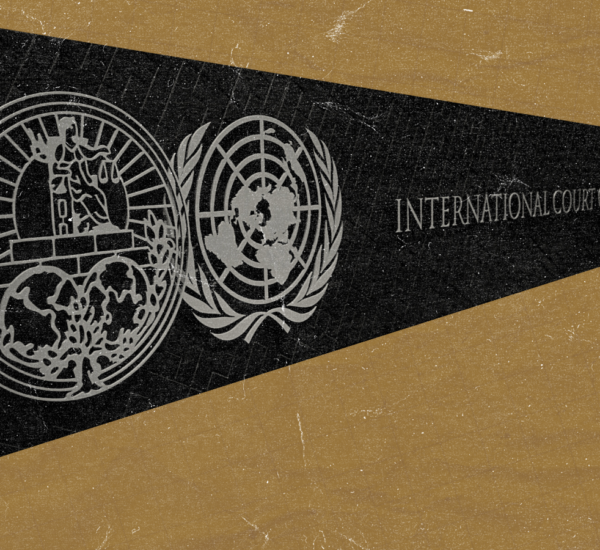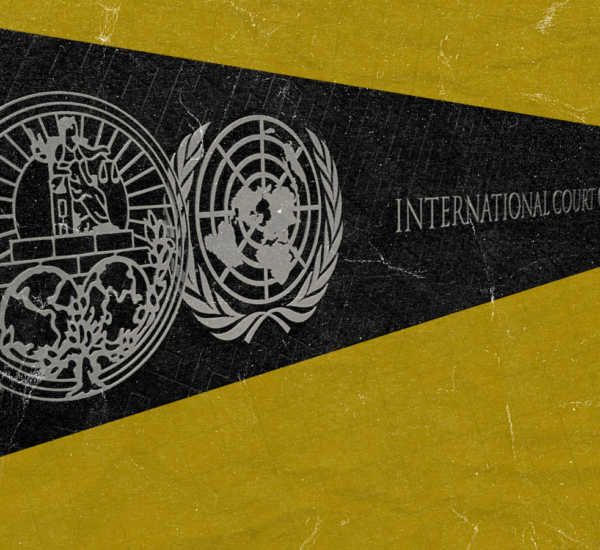
Mayank Labh
The right to free legal aid is an essential ingredient of reasonable, fair and just procedure for a person accused of any offence. Accordingly, it is implicit under Article 21 of the Constitution of India. The state has the constitutional and statutory obligation to provide free legal services not only at the stage of trial but also at the stage when the accused is first produced before the magistrate or under circumstances of near-custodial interrogation. Without access to effective free legal aid, undertrial prisoners are denied their right to fair trial and are prone to custodial torture, harsher sentences and wrongful convictions. The need for effective legal aid is more pronounced considering the unique socio-economic vulnerabilities of the prisoners as the brunt of carceral state is disproportionately borne by poor and structurally disadvantaged sections of the community.
Despite constitutional and statutory obligations, prison manuals of the country severely limit the scope of the right to legal aid of undertrial prisoners. Framed by the states under the Prison Act 1894, prison manuals are statutory instruments that codify the existing rules, regulations and guidelines regarding the prison administration and the prisoners in a comprehensive manner. They govern every mundane aspect of the lives of the prisoners in painstaking detail. The underlying logic is to concretise the ideas and imagination as enshrined in the Constitution, relevant statutes and various judgements seeking to reform prison administration into practical realities. However, by virtue of being colonial instruments or drawing primarily from colonial practices, the prison manuals mandate practices that are anachronistic, oppressive and discriminatory. As the focus of the prison manuals is on disciplining and controlling the prisoners, the rights of the prisoners take a back seat. The right of effective legal aid of the undertrial prisoners suffer a similar fate, evidenced by gross-underutilisation of legal aid by undertrial prisoners as only 7.91% of the undertrial prisoners were able to utilise state-sponsored legal aid.
Many states such as Bihar, Uttar Pradesh, Madhya Pradesh, Karnataka, do not even contemplate legal aid in their prison manuals. Maharashtra Prison Manual, 1979 (“MPM 1979”) is one of the few states that explicitly contemplates the need for legal aid to prisoners. Therefore, while a larger analysis of prison manuals of different states is desirable, the limited focus of the article is to examine (i) how the provisions of MPM 1979 reduce the right to legal aid of undertrial prisoners to a mere privilege, and (ii) how the design and structure of MPM 1979 stifles access to effective legal services by depriving the undertrial prisoners from having any meaningful access to their lawyers. The article argues that MPM 1979 makes the process of meeting with lawyers difficult and cumbersome and leaves the facilities to vague and non-appealable discretion of jail authorities. The article concludes by advocating for a comprehensive revision of the MPM 1979 to ensure realisation of the right to effective legal aid by re-imagining legal aid as not only providing traditional legal representation but also addressing the structural inequalities against the undertrial prisoners to defend themselves effectively.
Reducing the right to mere privilege
The National Legal Services Authorities Act, 1987 (“NALSA Act”) puts a mandatory and positive obligation on the state to provide legal aid to undertrial prisoners. Although non-binding, the Model Prison Manual, 2016 (“MPM 2016”), formulated by the Union Ministry of Home Affairs to guide the states on prison administration, puts a positive and mandatory obligation on the state to provide legal aid to undertrial prisoners. Moreover, international instruments like Nelson Mandela Rules (Rule 61) and Bangkok Rules (Rule 2), to which India is a signatory, also stipulate a positive obligation on the state to provide legal aid to undertrial prisoners.
Under the head ‘Legal Aid’, MPM 1979 provides that the prisoners of all categories may be given necessary facilities for:
(i) appeal and petition according to the provisions of any law;
(ii) legal defence;
(iii) delegation of power of attorney (property, land, civil suits, business transactions etc; and
(iv) execution of will.
The use of the word ‘may’ has relegated the right of free legal aid to an act of discretion of the prison authorities, without fixing any accountability on them. Without a positive and mandatory obligation, there is no onus on the prison authorities to ensure that each and every undertrial prisoner has a lawyer. The provision of legal aid should not just be the sole responsibility of legal service authorities. Being the immediate point of access, prisons are in the best position to facilitate delivery of legal aid to undertrial prisoners and there should be a positive responsibility on the prison authorities to ensure legal aid to undertrial prisoners.
At present, MPM 1979 tells us that necessary facilities for legal aid are to be provided by the prison administration. However, it does not spell out what these ‘necessary facilities’ are and in what circumstances they need to be provided. At a more fundamental level, what is the nature of legal aid envisaged under MPM 1979 for which facilities are to be provided? Does it only include providing a lawyer? A two-member committee on legal aid consisting of Justice PN Bhagwati and Justice VR Krishna Iyer (“Juridicare Committee”) underscored the limitation of operationalisation of legal services within traditional legal practices, and advocated to address the specific inequalities against undertrial prisoners for them to defend themselves effectively. The MPM 1979 totally fails in imagining the need of undertrial prisoners to contact other service providers such as social workers, counsellors and mental health professionals for the special needs of undertrial prisoners. Social workers act as a bridge between the lawyers and undertrial prisoners by translating legalese into a language that undertrials could understand and provide services which are equally relevant to legal representation such as contacting families for support, assisting in locating or preparing documentation etc. Similarly, mental health professionals and counsellors assess and evaluate the mental health of undertrial prisoners and respond with the requisite support and treatment. Social workers and mental health professionals could play the role of mitigators in as much as they bring out the mitigating circumstances of the accused relevant to sentencing.
The vague reference to legal aid in MPM 1979 without any elaboration is unbecoming of prison manuals that seek to provide in the greatest possible details how the rights and duties of the prisoners are to be materialised. The failure to update prison manual risks translating into the same oppressive and archaic set of practices for undertrial prisoners, denying them the very rights guaranteed by the Constitution of India, NALSA Act and various judicial decisions.
Lack of meaningful access to lawyers
Without elaborating how undertrial prisoners could receive legal aid, the MPM 1979 further discourages the provision of legal services to the undertrial prisoners by thwarting access to lawyers. Visits by lawyers to prisons and regular interviews with the undertrial prisoners help the lawyers in providing better legal representation, understanding the kinds of difficulties prisoners face in their cases in which they are put on trial and the conditions of incarceration of undertrial prisoners. Lawyers need to obtain instructions and detailed facts about witnesses, exhibits, and other evidence sought to be used against their client which require long and detailed interviews on a fairly regular basis. However, the procedures in MPM 1979 make the process of meeting the lawyers difficult and cumbersome, and thereby, severely restrict the possibility of effective communication with the lawyers for undertrial prisoners.
First of all, the MPM 1979 requires that the lawyers of the undertrial prisoners have to write an application to the Superintendent to satisfy them that they are the bonafide legal adviser of the prisoners and they have a legitimate business with their clients (Rule 7(ii), Chapter 31). The construction of the provision is such that prison authorities ask for vakalatnama from the lawyers everytime they seek to meet the undertrial prisoners to prove their bona fide, causing hardship and inconvenience to the lawyers. On the contrary, orders of the Bombay High Court (here and here) are to the effect that the jail authorities have no right to require lawyers to produce a copy of vakalatnama to prove their bona fide at all because such a statement by the lawyer can be accepted on verification from the prisoner themselves.
Second, the number of times an undertrial prisoner can meet their lawyers is not specified under the MPM 1979, leaving it to the discretionary power of the prison superintendent. In practice, we have seen that the undertrial prisoners are allowed to meet their lawyers only once in a week. This is particularly problematic for those undertrial prisoners who have multiple cases and require different lawyers to defend the respective cases separately. All the cases cannot be discussed in one day with all the lawyers. Even in cases where the undertrial prisoners have a single lawyer for all their cases, it might not be possible to discuss all the cases in a day. The practice of allowing the prisoners to meet the lawyers only once in a week violates the ruling of the Supreme Court in Francis Coralie Mullin v. The Administrator, which considered the norm of two interviews in a week with prisoners to be reasonable and non-arbitrary. While any provision that allows less than two visits a week should be held unreasonable and arbitrary, there is also a need to adopt a more differential and individualised approach which takes into account the unique situations of prisoners to determine the reasonableness of the time provided to prisoners with their lawyers. Third, the duration and timing of the interviews make it more restrictive for the prisoners to meet their lawyers. The interview duration is only 20 minutes, which could be extended up to 10 minutes, with the permission of the jailor. Considering the extremely crowded and noisy environment, the possibility of effective communication gets severely affected and limits the ability of lawyers to obtain proper instructions regarding the evidence against the prisoner. Exacerbating the duration is the timing slot for the interviews with the lawyers. As per the MPM 1979, the interview shall be granted on working days from 9 AM to 12 PM and from 3 PM to 5 PM. The evening slot conflicts with the courts’ working hours which are open till 4:30 PM. Taking note of the same, the Bombay High Court held that the lawyers should be allowed to meet their clients between 9 AM and 10:30 AM. However, in practice, even for the morning schedule, the lawyers are expected to reach between 8 AM to 9 AM to avail the morning slot which causes huge inconvenience to those who come from distant places.
Written communications with the lawyers
Regarding letters, prisoners are allowed to write letters to their friends and relatives only. Only at the superintendent’s discretion could additional letters be allowed for ‘legal purposes’ (Rule 17(v) and Rule 17(vi), Chapter 31). In what specific situations such additional letters are to be allowed by the superintendent? There are no answers. All the letters would be subject to examination and censorship by the jailor especially empowered by the Jail Superintendent and any incoming or outgoing letters could be withheld by the Superintendent if they seem to be ‘improper’ or ‘objectionable’ (Rule 21, Chapter 31).Therefore, unchecked discretionary power could cause hindrances to realising the right to free legal aid at this stage as well. In fact, the right to meet/communicate with their lawyers is contingent on the ‘good behaviour’ of the prisoners and the Superintendent may withdraw the privileges of the individual prisoner for ‘unsatisfactory conduct’. To illustrate, the prisoner could be deprived of their right to meet/communicate with their lawyers if they were found singing, talking loudly or laughing loudly as such activities constitute offence under the MPM 1979.
Facilities for interviews and written communications
The MPM 2016 allows prisoners to use ‘telephones or electronic modes of communication on payment’ to contact their family or lawyers. E-mulaqats, as an additional facility, could be a cheap and convenient tool to ensure effective communication with legal aid lawyers. During the pandemic, prisoners were allowed to have video conferences (e-mulaqats) through the National Prisons Information Portal with their family members or lawyers. It was easily accessible and there was no verification of documents required to register under the portal, which made it convenient for the prisoners and lawyers to communicate.
While the undertrial prisoners are ‘entitled to reasonable facilities for interviewing or communicating with the lawyers’, the MPM 1979 does not specifically provide for how the interviews need to be facilitated and the infrastructural requirements that would be required to enable access to interviews for the undertrial prisoners. Due to lack of guidelines/ circulars governing e-mulaqats, prisons in Maharashtra use the facilities of e-mulaqats in an ad hoc manner. This leaves it open to the wide discretion of the jail authorities to decide how such facilities are to be provided. Without any standard or minimum rules, MPM 1979 cannot ensure effective communication of prisoners with their lawyers. It is imperative that the Maharashtra government must design a uniform policy that allows for video-conferencing/phone calls for the prisoners.
Conclusion
The objective of keeping prisoners in jail is rehabilitation and reformation. Without putting a positive obligation on prison authority to ensure legal aid and by making it difficult for prisoners to meet and communicate with lawyers and other support groups, the MPM 1979 denies undertrial prisoners their right to effective legal aid. Keeping in mind the socio-economic make-up of the country and the purpose behind recognising the right to free legal aid, there is a need for a comprehensive revision of the MPM 1979 to reflect this constitutionally sanctioned and ensure access to justice to undertrial prisoners in a meaningful manner.
Mayank Labh is with the Fair Trial Programme, an undertrial legal aid initiative at Project 39A. The programme provides legal aid to the undertrials in Pune and Nagpur central prisons.




